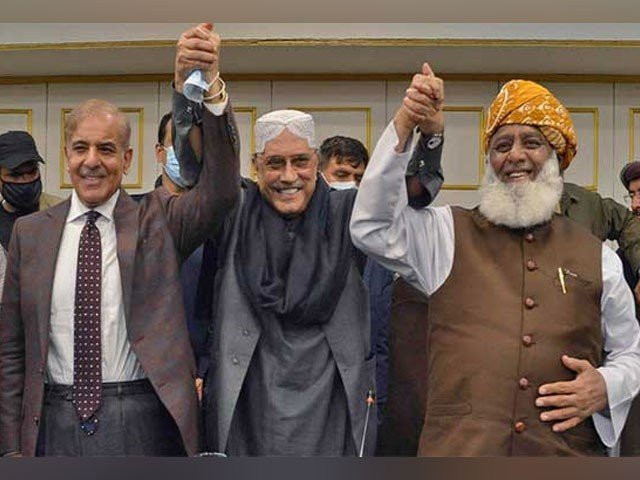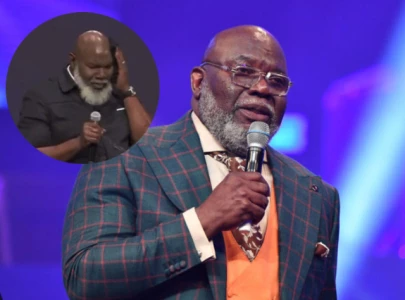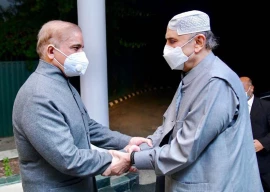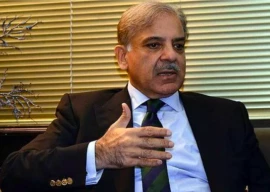
Prime Minister Shehbaz Sharif on Friday met with Pakistan Peoples Party Parliamentarians (PPPP) President Asif Ali Zardari and Jamiat Ulema-e-Islam-Fazl (JUI-F) chief Maulana Fazlur Rehman to contemplate on the political situation arising after President Dr Arif Alvi fixed April 30 as the date for general elections of the Punjab Assembly.
The meeting at the Prime Minister House came on the heels of a Supreme Court judgment that asked the president and Khyber-Pakhtunkhwa governor to set the date for provincial polls after consulting the Election Commission of Pakistan (ECP). Also, the meeting took place a day after Shehbaz had a long meeting with Chief of Army Staff (COAS) General Syed Asim Munir.
In the meeting, sources said, Shehbaz, Fazl and Zardari deliberated on the current political situation and the government’s strategy regarding the elections in Punjab and K-P.
In the past, the sources said, the three bigwigs of the ruling alliance noted that three elections were delayed beyond the constitutional limit of 90 days for different reasons, including the time when former prime minister Benazir Bhutto was assassinated.
They said that questions, such as whether or not the elections should be held simultaneously in the provinces, were pondered over in the meeting, adding that the leadership also gauged the option of filing a review plea against the apex court decision.
At the moment, the sources said, the government was not in favour of holding elections in Punjab and wanted to hold the vote in the country at the same time because elections with intervals would not only cost the national exchequer but might also create political and constitutional crises.
For instance, the sources explained, a neutral set-up was needed after the national and provincial assemblies were dissolved, so how impartiality of the administration would be ensured during the elections when one party contesting on the National Assembly seats would be in power in the province at that time.
Besides, the sources added, the top leadership of the ruling parties was apprised that census and delimitation exercise was another hindrance in holding the snap polls as provisional census results would be presented before the Council of Common Interests (CCI) and, if approved, the process of delimitation would start and might take months to complete.
They argued that holding provincial assembly elections on the basis of old census and then holding election on the basis of new census results would not only complicate things but end up before courts and litigation might go on for months or even years.
Read LHC bars by-polls on 43 PTI MNAs’ seats
Though Alvi announced the election date for Punjab, Shehbaz discussed with Fazl and Zardari that the next general elections would be held in constituencies based on the results of new digital census, which kicked off across the country on Wednesday.
As many as 121,000 field enumerators would carry out the field operation of survey and the process would be completed by April 1, the Pakistan Bureau of Statistics (PBS) spokesperson said recently, adding that the data would be released by the 30th of next month, which would then be approved by the CCI.
Keeping all these things in view, the sources claimed, the matter might land in courts once again. They added that the leadership also decided to consult with other allies in the coalition before finalising things.
This is the second such meeting of the political leadership of the country in less than 10 days. On Feb 24, Zardari met Shehbaz to discuss the political situation.
In the past couple of weeks, a political stalemate had turned into a significant constitutional crisis, especially, when Alvi announced the date for elections in the two provinces but his decision was called “unconstitutional” in the National Assembly within the next few hours.
Later, the Supreme Court exercised its suo moto jurisdiction and tried to settle the controversy.
The hard stance taken by all the mainstream political parties on holding elections in the provinces had pushed the country into a constitutional crisis at a time when the country was already facing a high risk of default.
Though the country had been embroiled in political, economic and constitutional crises for months now, the recent crisis started when former prime minister and PTI chief Imran Khan dissolved the assemblies in Punjab and K-P in an attempt to force snap elections at the Centre and other provinces.
That didn’t happen and now the ruling alliance was mulling how it could delay elections for a few months so that the general elections took place simultaneously in the country on the basis of new census results and delimitation.


1723278472-0/BeFunky-collage-(4)1723278472-0-165x106.webp)


1719564405-0/BeFunky-collage-(19)1719564405-0-165x106.webp)
1732525382-0/Express-Tribune-(10)1732525382-0-270x192.webp)


1732523977-0/Copy-of-Untitled-(82)1732523977-0-270x192.webp)
1732520846-0/Copy-of-Untitled-(79)1732520846-0-270x192.webp)
1732515558-0/Copy-of-Untitled-(76)1732515558-0-270x192.webp)









COMMENTS (2)
Comments are moderated and generally will be posted if they are on-topic and not abusive.
For more information, please see our Comments FAQ